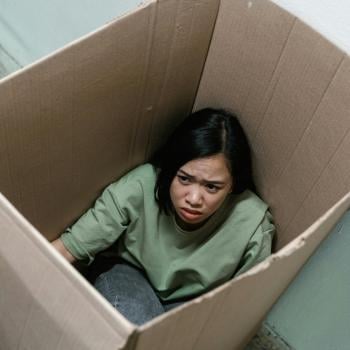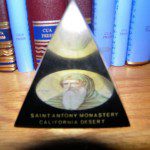Editor's Note: This is the final installment in a three-part series. See Robert Crosby's column page for more.
I want to know Christ and the power of his resurrection. ~ The Apostle Paul (Phil. 3:12)
Maggie McKinney, an eighth-grade Spanish teacher, faced a personal Gethsemane two decades into her marriage. "When my husband of twenty years and I separated," she says, "people called, wrote letters, came visiting. Some promised, 'You'll marry again soon—and next time your marriage will last.' Others said, 'You're better off single.' Almost everyone encouraged me, 'Go for it!'"
Eighteen months later, when Maggie and her husband decided to give their marriage a second shot, support was limited at best. "'I heard you two are back together,' said one caller. 'I hope . . . it isn't true.' Another asked: 'Are you sure you want to risk going through this again?'" One minister told her: "When something is dead, you need to bury it."
There is something cold and callous in the ring of the minister's counsel. Such counsel seems too stark and harsh when addressing something as significant as a twenty-year-long marriage.
No doubt, however, Maggie's array of advisors had watched her on some of her darkest days. They had seen the anguish and disillusionment on her face when she had discussed her marriage. They heard her grappling for hope. They saw the tears. Watching her heart fighting to navigate the hurts and hurdles of it all was difficult. Somehow the thoughts of a Plan B, of just being rid of the struggle, seemed a lesser burden to bear than trying to weather it. Why, it only made sense—common sense, that is.
Getting Personal
Jesus turned the Kingdom of Common Sense on its head in more ways than one. Just think of it: To bloodthirsty zealots he insisted "love your enemy" and "bless those who persecute you." To his often-vengeful disciples he upped the tally for required acts of forgiveness from seven to "seventy times seven." And to a young, bereaved sister named Martha, whose beloved brother Lazarus (a close friend of Jesus') had just died, he made it clear that the Resurrection was more than simply a coming prophetic event.
"Lord," Martha said to Jesus, "if you had been here, my brother would not have died. But I know that even now God will give you whatever you ask."
Jesus said to her, "Your brother will rise again."
Martha answered, "I know he will rise again in the resurrection at the last
day." Jesus said to her, "I am the resurrection and the life. He who believes in me will live, even though he dies; and whoever lives and believes in me will never die. Do you believe this?" (Jn. 11:21-26)
Into the face of Martha's grief, Jesus came that day. He walked right into her conflict, into her Personal Cross in life. Her soul was not only wracked by the loss of Lazarus, it was bewildered over the question of why. Why hadn't he just come earlier? Why had he waited this long? Surely he could have saved her brother. Martha was struggling with the same thing you and I often struggle with, a nagging if—"if you had been here, my brother would not have died" (v. 21).
What Martha hoped would happen, had not. If any present hope was in sight she could not see it. To Martha's dilemma Jesus brought hope in the form of five short words: "Your brother will rise again" (v. 23). He didn't say how. He didn't say why. He didn't even say when. But he did, however, bring her a promise and an emphatic one at that.
Martha answered, "I know he [Lazarus] will rise again in the resurrection at the last day." In other words, I'm familiar with the doctrines. I have studied them well. I know that I have the hope of someday seeing my brother again in heaven, in the "sweet by and by." It is as if Martha feels for a moment that Jesus is giving her the last thing anyone probably wants at such a moment of deep distress—a Sunday School lesson.
What Martha did not realize, however, is that not only would there one day be a Resurrection, she was at that moment standing directly in front of Resurrection itself, Resurrection incarnate. All of the power to resurrect, to bring back to life, to transform and to make new, were in the hands of the one with whom she was at that moment conversing. The dark valley of the shadow of death she had entered just four days earlier was about to be visited by the only person on the planet that possessed a power greater than death. All that was required, Jesus said, was that she . . . "believe."
Certainly Martha's confession of faith in a coming "resurrection" was no small thing. At least she had a long-term hope in God's ultimate power over death. Jesus was, however, calling her to a more immediate awareness, to a Personal Resurrection. Resurrection power was not limited to a future event in history. No, Resurrection power touched the planet the moment Jesus arrived. Why? Because he was, and is, and will forever be, the "Resurrection and the Life." Yes, Martha had a hope, but Jesus had a higher one.





